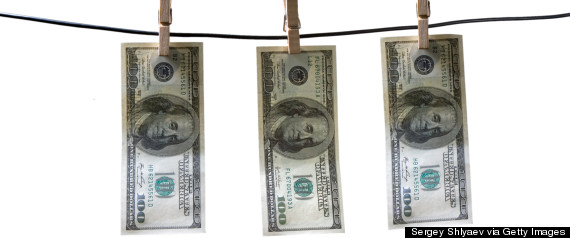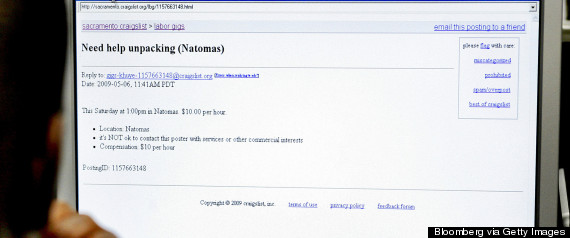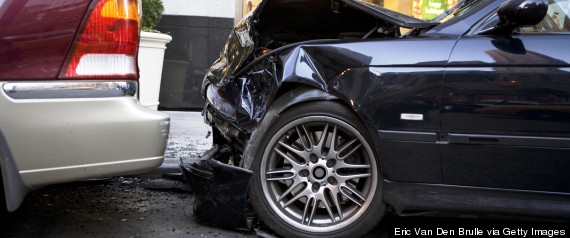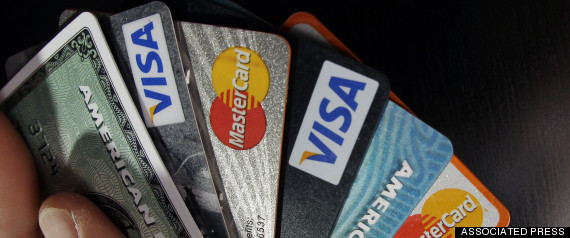
We all make mistakes in our 20s. There are relationship mistakes, career mistakes and, of course, money mistakes.
While the first two are probably pretty much unavoidable, doing a little research and taking some measured advice from experts might help you avoid the third one.
So, we compiled a list of HuffPosters' biggest financial regrets and then got in touch with some personal finance experts to break down what exactly went wrong. Farnoosh Torabi is an author and correspondent for NerdWallet.com, a personal finance website, and Meagan Hooper is the founder bSmartGuide.com, an online community for millennial women.
1. I chose a private college that buried me in debt.
What she did: "I went to a private university for college knowing, but not fully understanding, what private student loans would actually look like after graduation. This choice was actually made in my teens, but I recognize -- and still do once a month when that lump sum leaves my bank account -- the gigantic financial mistake I made in my 20s. It was strictly a financial mistake, though. College was awesome, debt just isn't." -- Managing Lifestyle Editor Katelyn Mullen

What she should have done: Torabi says that choosing the right college to fit your budget is a challenging decision, especially when you have to make it at such a young age.
"I would have told your younger self to explore everything from federal loans to scholarships, grants, working part-time and most importantly, picking a more affordable school," Torabi said. "Rule of thumb: If you’re going to borrow to attend school, opt for federal loans first and make sure that your monthly payment doesn’t exceed more than 10 percent of your anticipated take-home pay upon graduating."
2. I tried to Pinterest my whole apartment.
What he did: "At 21, I basically Pinterested my whole first apartment. (But this was before Pinterest -- so it was "Trading Spaces." I was trying to do everything in all of the episodes of "Trading Spaces" combined). Needless to say, it was a huge disaster and I definitely lost my security deposit." -- Hawaii Associate Editor James Cave

What he should have done: Torabi says that avoiding this mistake is all about reading the fine print.
"While it’s fun to take on DIY projects, as a renter you can’t go crazy without your landlord’s approval -- or, as you learned, you have to pay the price," Torabi said. "Make sure you read (and reread) the fine print in your lease to know what, if any, 'alterations' are allowed. [Your landlord] may even pitch in financially if you plan to do minor renovations, if the new look could raise the value of the apartment."
3. I totally gave up on saving.
What she did: "I canceled my savings account at one point because I needed the $300 that was in it. I didn't reopen it for three years ... mostly because I never had any money that needed saving … because I kept spending it all." -- HuffPost Live Social Media Editor Paula Ersly

What she should have done: Hooper says that not only are your 20s a good time to start saving, they're a good time to start investing as well.
"The rate of inflation in the U.S. has been as high as 3.87 percent in the past five years. (The current annual inflation rate is 1.66 percent as of October 2014.)," Hooper said. "This means that if your money sits in a bank or savings account with a very low interest rate (typically less than 1 percent), your money will be worth less every year that passes. The only way for your hard-earned money to not lose value over time is to invest it in investment vehicles such as CDs, stocks, bonds, ETFs, etc."
4. I trusted Craig and his so-called list too much.
What she did: "I fell for a craigslist scam! I wired a very large deposit to a guy I had never met to secure an apartment in a very competitive building. Obviously, I never heard from him again." -- HuffPost Hawaii Editor Chloe Fox

What she should have done: Hooper says that when it comes to conducting business online, you can't be too careful.
"Unlike eBay, Craigslist doesn’t take responsibility for financial transactions, and rental scams are one of the most commonly reported," Hooper said. "Users take a huge risk when transacting sight-unseen. Craigslist recommends to 'deal locally and face-to face to avoid 99 percent of the scam attempts.'"
5. I bailed on saving for retirement.
What she did: "I cashed out my 401(k) when I was 25 to pay off a fender bender instead of exploring other options." -- Deputy National Editor Carly Schwartz

What she should have done: Torabi says that while cashing in your retirement savings can be tempting in the face of an emergency, it should be an absolute last resort.
"This is an all-too-common mistake," Torabi said. "Unless you have absolutely no other options, never make an early withdrawal from your retirement account. You have to pay taxes and a 10 percent penalty, which can quickly eat up close to half of your investment. While I’m not a proponent of accumulating debt, in the case with your fender bender, putting the expense on a low or 0 percent APR credit card may have been a wiser choice."
6. I kept buying haircut discounts that I never used.
What she did: "Sometimes I fall for those haircut deals in [New York City's] Union Square -- where you get stopped and asked where you get your hair cut and then offered a deal you can't turn down even though you never get your hair cut." -- Healthy Living and Taste Editor Kate Bratskeir

What she should have done: This isn't just an issue for New York City residents -- daily deals sites all over the country offer discounts on everything from haircuts to vacations. Torabi says that before you decide to shell out, it's best to look at how much you're really saving.
"I SO did this, too, when I first moved to New York," Torabi said. "I proudly paid only $60 for $200 worth of salon styling and treatments. Of course when I got to my appointment, I learned just how little $60 could buy me. All it could afford was a haircut. Lesson learned: If it sounds too good to be true, it probably is. Next time: Just politely say you're not interested."
7. I made big life decisions I couldn't afford.
What he did: "When I first moved to LA from Boston, the month after I turned 21, I hardly accounted for the additional costs of my car. I budgeted for what I thought would be enough for gas and a lease, but –- never having owned a car of my own -- I didn't realize all the costs of maintenance and, with gas prices where they were in the summer of 2012, GAS. Between the car and the way bar tabs can sneak up on you when you're 21 and still enjoying your newfound freedom, I spent more than a few nights scrounging my office kitchen for snacks and/or eating cans of tuna as a meal. I left LA after a year." -- Associate Business Editor Alexander Kaufman

What he should have done: Hooper says before making big life changes, it's important to take a hard look at your financial reality.
"Many millennials are sandwiched between student debt and unemployment (or underemployment), unable to afford the lifestyle modeled for them by previous generations," Hooper said. "Thirty-four percent of millennials ages 25 to 29 live with their parents because they can’t afford the direct and indirect costs of long-term financial commitments such as purchasing a home, car, or pet –- not to mention affording marriage and starting a family. To know if you can afford the cost of commitment, ask ‘Can I afford the direct and indirect costs for this long-term financial commitment?’"
8. I lived off my credit card.
What he did: "In late college and my first year or so in New York, I wasn't making enough money in the industry to pay for anything besides rent, so I used credit to pay for things I needed: food and beer. I maxed them out -- even though I gave myself a small credit limit -- but it took me a while of ignoring debt collectors to actually get around to paying more than the minimum payment (which is a bad idea, kids)."
"I'm pretty much out of credit card debt, but my credit is shot, which means I still have to ask mom and dad to co-sign for leases or, say, a car loan. Which doesn't seem like a big deal, until you realize that banks see a co-sign as a DEBT to the person who is signing for you. Good times!’ -- Crime and Weird News Editor Andy Campbell

What he should have done: Hooper says that having a credit card can be a double-edged sword that can both make or break your credit-worthiness going forward.
"Debt is the largest financial issue facing millennials, [but] having an open credit card with a balance that’s paid in full every month can improve your credit score as it demonstrates you’re a responsible borrower," Hooper said. "Having more than one credit card can be beneficial in that it proves more than one lender finds you creditworthy -- but don’t have more than five credit cards open at one time. If you can’t trust yourself to pay the balances in full, cut up the cards to prevent yourself from using them, while still keeping the accounts open."
9. I pretended ignorance was bliss.
What she did:"I hate checking my bank account because it makes me anxious. However, there are certain services that bill me automatically. Of course, I forget when that happens, so I end up automatically renewing, for example, my Zipcar membership, which I don't really need anymore." -- HuffPost Associate Editor Sara Boboltz
What she should have done: Hooper says that keeping close track of your expenses is key to staying financially balanced.
"Tracking your expenses can be an emotional challenge if you’re reminded of how little money you have to spend," Hooper said. "Some companies are hoping you’ll forget you’ve signed up for a monthly or annual recurring fee. The only way to prevent this from happening is to audit a full 12 months of expenses because many services only bill yearly. My favorite apps for tracking money are Mint Personal Finance, LearnVest, and Personal Capital Money. (And I occasionally use a good old-fashioned spreadsheet to review and organize my expenses.) But, these apps are useless if you don’t spend time each week reviewing the reports."
Quotes have been edited for brevity and clarity.
